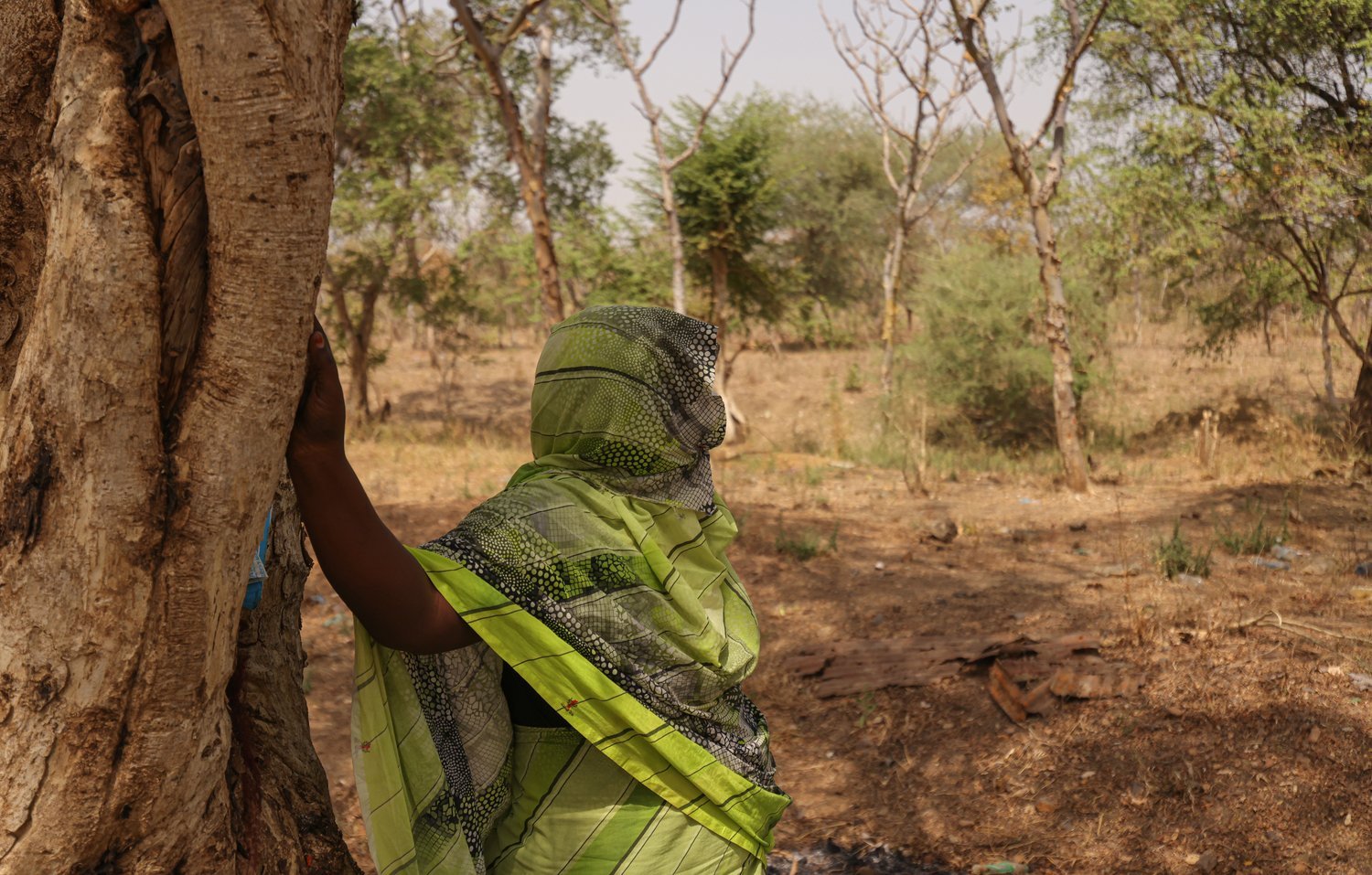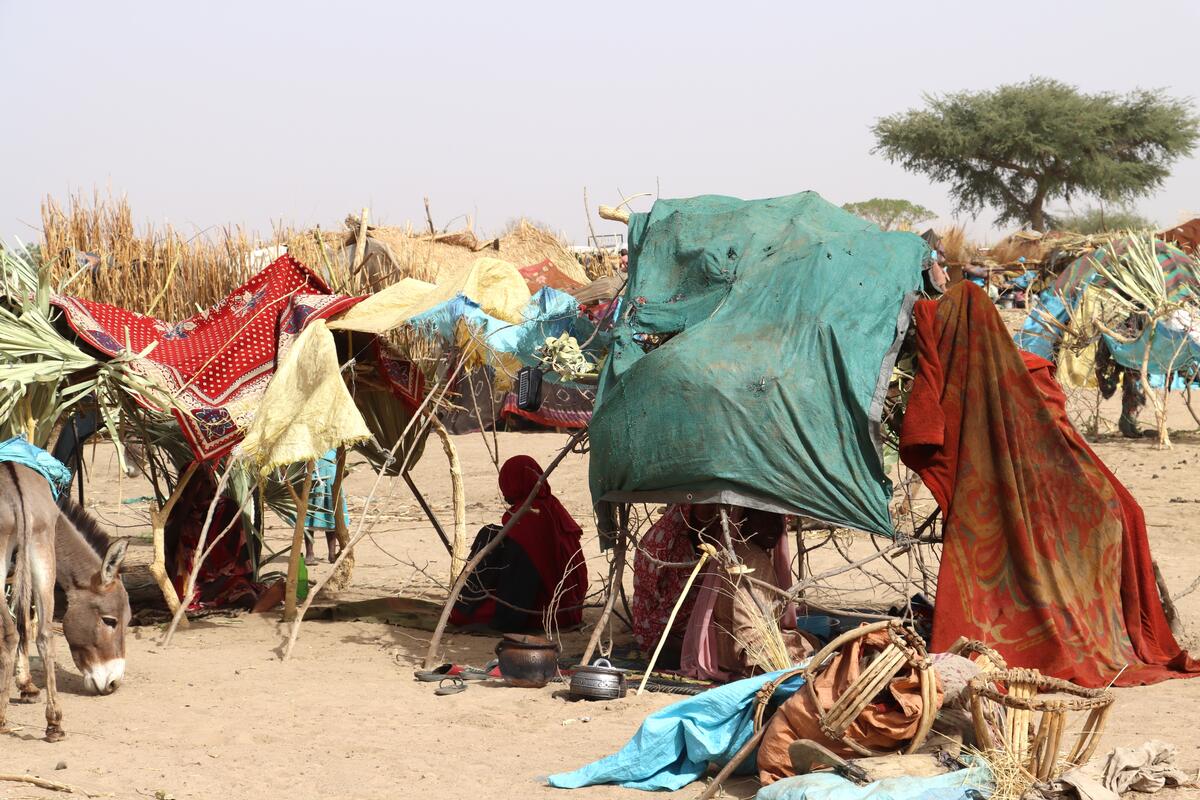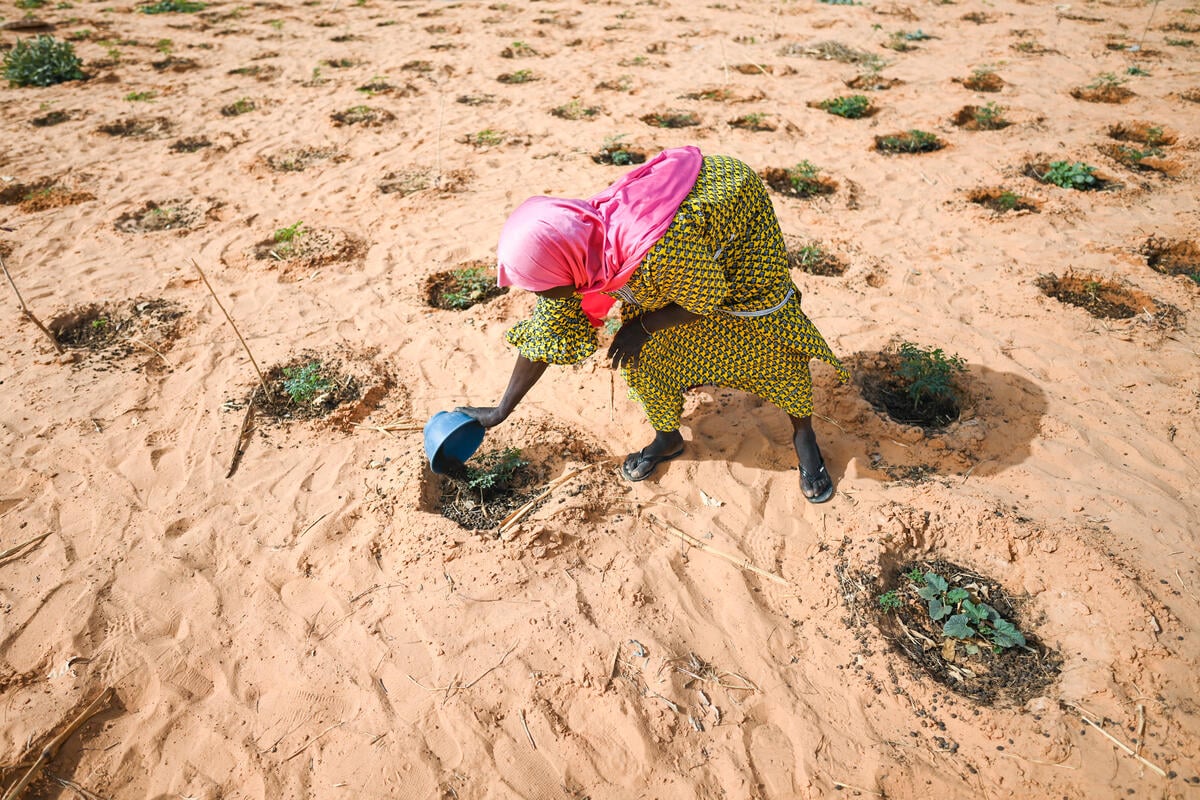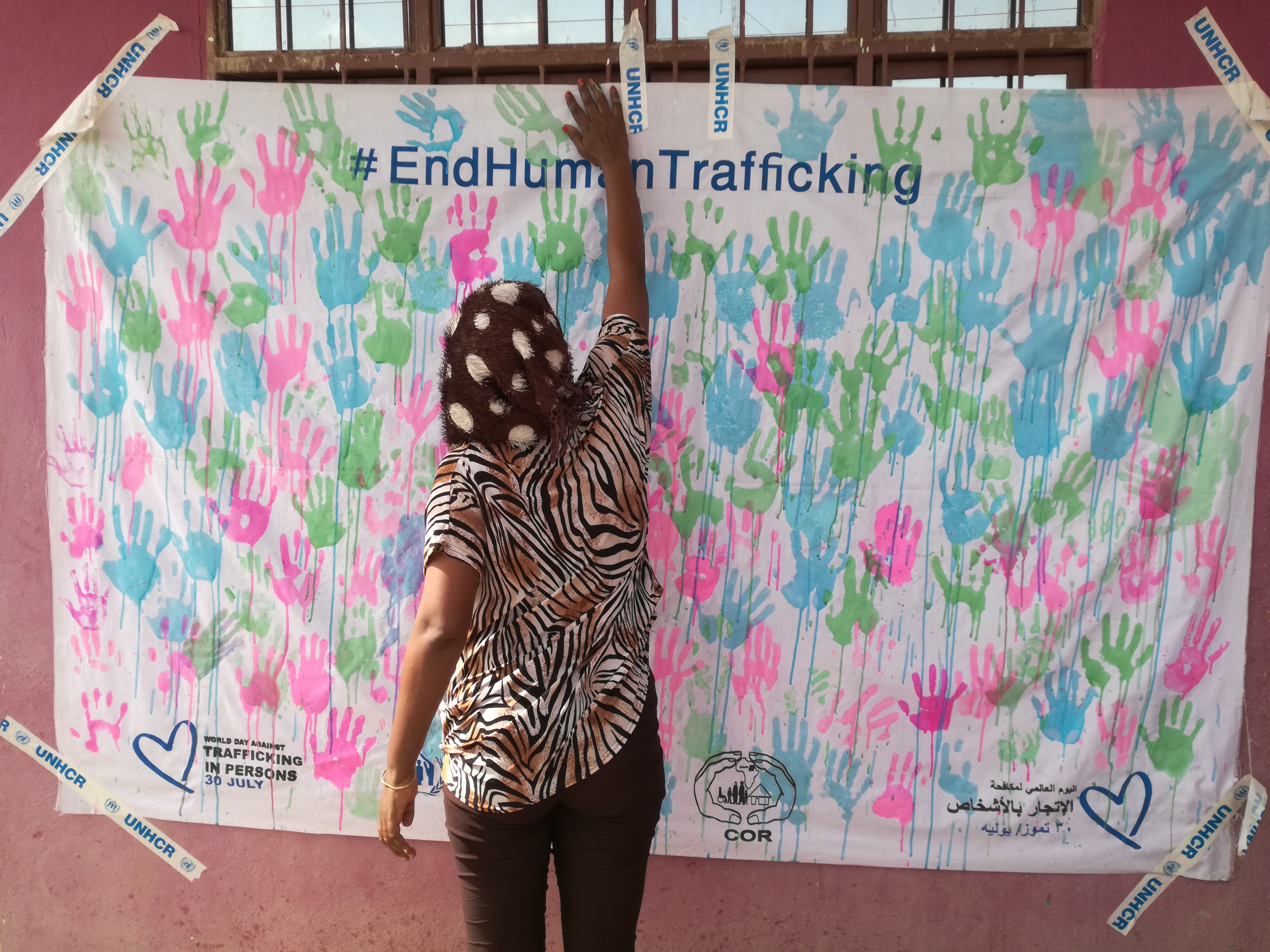First of 10,000 refugees moved to camp in southern Chad
First of 10,000 refugees moved to camp in southern Chad

GORE, Chad, July 13 (UNHCR) - The UN refugee agency and its partners have moved the first of some 10,000 Central African refugees from border sites in southern Chad to an existing camp further inland, where they will have better access to assistance during the rainy season.
On Wednesday morning, three trucks carrying 97 refugees waded through rain-flooded areas in Betel village in southern Chad and headed for Amboko camp, located 6 km from the main town of Goré. They arrived after a five-hour drive through bandit-ridden areas, escorted by Chadian gendarmes.
"Yesterday, we were afraid the refugees would refuse to move, but this morning they were happy to go to Amboko, where living conditions are more acceptable," said UNHCR logistics officer Colin Pryce.
Upon arrival at the camp, the group of mostly women and children were registered and provided with food rations like beans and sorghum, as well as relief items like mats and jerry cans.
Amboko already hosts 13,000 refugees who fled the Central African Republic following a 2003 military coup, but the camp can accommodate up to 27,000 people. The Chadian government has provided UNHCR with additional land to build a temporary transit centre at the camp. The newcomers will be hosted at the temporary site until after the harvest season, when some of the farmland might be freed up to accommodate them.
African Concern is setting up the temporary tents while COOPI is building additional latrines. Some 40 tonnes of World Food Programme cereals have arrived in Goré for further distribution.
A second relocation movement is set to follow on Thursday. The International Federation of Red Cross and Red Crescent is providing seven trucks, boosting UNHCR's transport capacity to 10 trucks.

The refugees are part of a group of 10,000 refugees who arrived in Chad last month after fleeing clashes between government troops and armed groups in northern Central African Republic, where banditry and rebel activity are reportedly rife.
Those who are awaiting relocation to Amboko are currently living under difficult conditions in 17 villages on the Chadian side of the border. Most of them live in shelters made of leaves and sticks. They have to forage for food, and are susceptible to diseases like cholera and malaria.
The UN refugee agency and its partners are rushing to move them to Amboko camp to better assist them before they are isolated by flooding during the rainy season. The relocation is expected to be completed within a maximum of three weeks.









